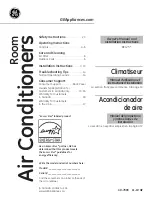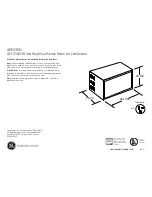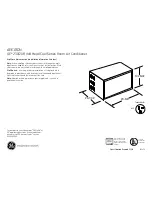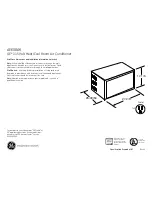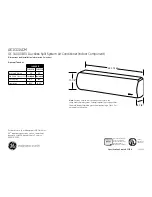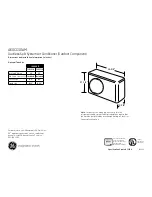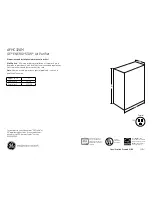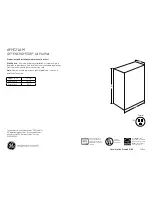
92
12
SELF-DIAGNOSIS
12-1. Malfunction-diagnosis method by remote controller
12-1-1. Error history of unit
(1) Wired remote controller
Mode number
Setting number
Refrigerant address
Unit number
PAR-20MAA
ON/OFF
CENTRALLY CONTROLLED
ERROR CODE
CLOCK
ON
OFF
˚C
CHECK
CHECK MODE
FILTER
TEST RUN
FUNCTION
˚C
1Hr.
NOT AVAILABLE
STAND BY
DEFROST
FILTER
CHECK TEST
TEMP.
TIMER SET
E
G
C D
H
F
I
A
B
J
1
2
a)
ERROR CODE
3
(1)
c)
b)
d)
e)
<In case of trouble during operation>
If there is a trouble on air conditioner, both indoor unit and out-
door unit will stop and digital display shows what was wrong.
1
“CHECK” and refrigerant address are displayed at set tem-
perature display. Error code and unit number are displayed
at clock display alternately.
(If outdoor unit is malfunctioning, unit number is 00.)
2
The refrigerant address and error code initially sent from
the unit are displayed in case of group control system which
one remote controller controls plural refrigerant systems.
3
Press the “ON/OFF” button to cancel error code.
In case of central control by the controller of MELANS, cancel
the error code by the controller of the MELANS, and in case
of distant-handy combined operation, cancel the error code by
cancelling distant operation.
<Malfunction-diagnosis method at maintenance service>
Digital control has memory function that memorizes latest
error code even if it is cancelled by remote controller or power
is shut off, so error histories can be searched by following the
procedure below.
Search error histories of each unit by remote controller.
1
Turn to self-diagnosis mode.
Press the
H
“CHECK” button twice within three seconds,
and following display appears.
a) Refrigerant address for self-diagnosis
2
Set refrigerant address number that you want to diagnose.
Press the
F
(temp.) button to set refrigerant address
to be diagnosed.
Refrigerant address has number from 00 to 15.
Three seconds after setting, lighted self-diagnosed refriger-
ant address begins blinking and self-diagnosis process
begins.
3
Self-diagnosis result display
(1) When there is an error history. (Refer to page 102 to
105 for details of error code contents.)
b) Alternating display
c) Error code
d) Attribute of error search
e) Unit number
(2) When there is no error history.
(3) When the address does not exist.
OCT04A-4.qxp 04.9.29 9:17 AM Page 92


































